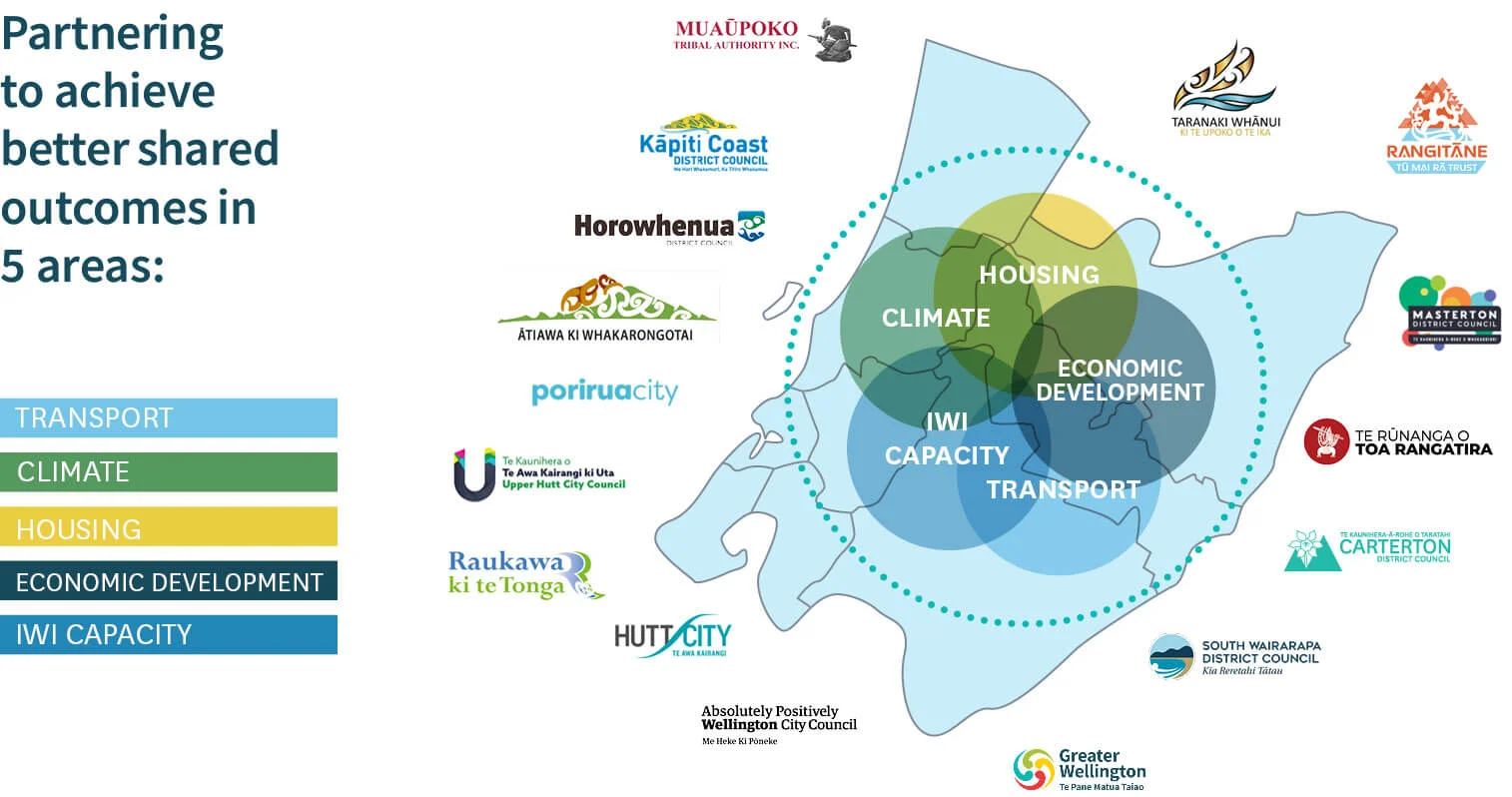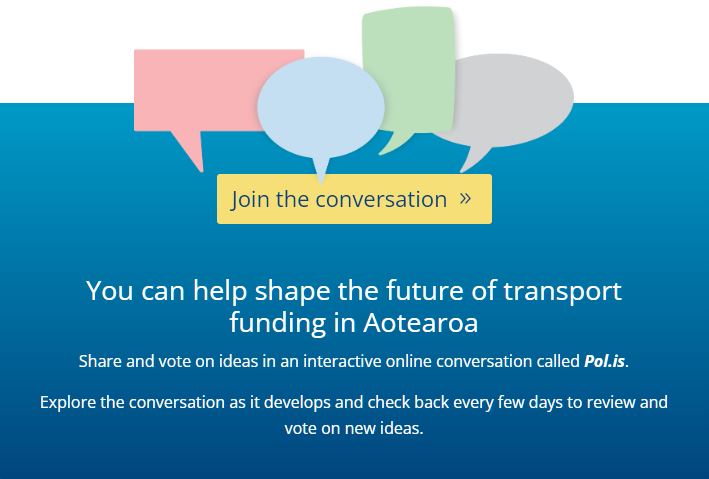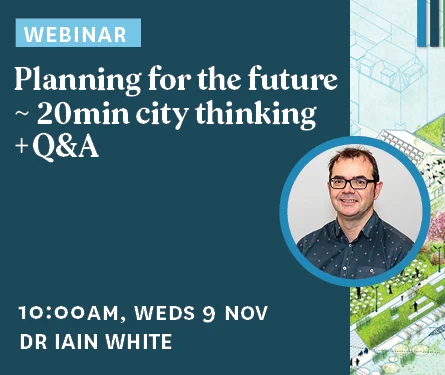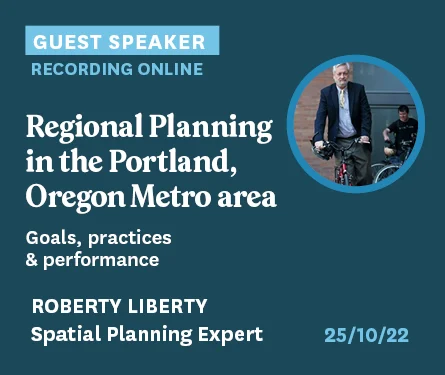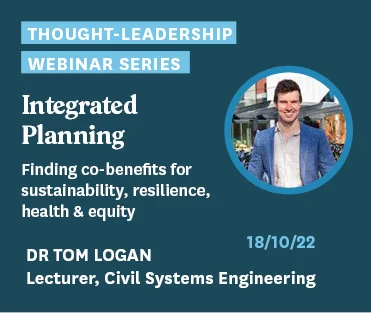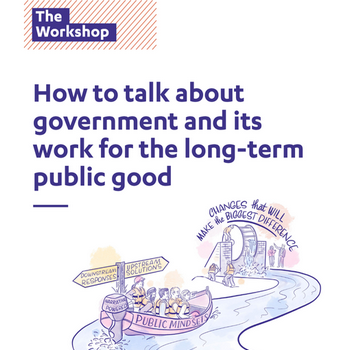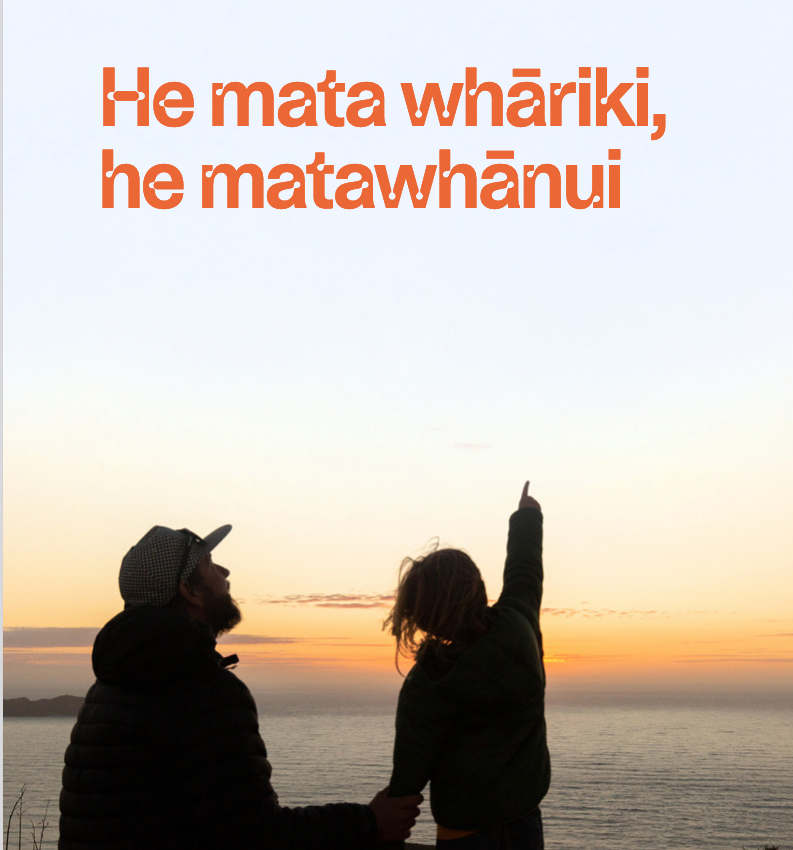Kia ora koutou and welcome to October’s pānui | eNews, featuring:
Welcoming new members to the WRLC committee
Following the local body elections In October, there are a few new faces on the Wellington Regional Leadership Committee.
We are excited to welcome the following new Mayors onboard:
Ron Mark Carterton District Council
Tory Whanau Wellington City Council
Martin Connelly South Wairarapa District Council
Janet Holborow Kapiti District Council
Gary Caffell Masterton District Council
To view the full list of members of the Wellington Regional Leadership Committee, including central government and iwi members, click here.
The new committee will have its first meeting in December.
New WRLC Project: Regional Food Systems Strategy
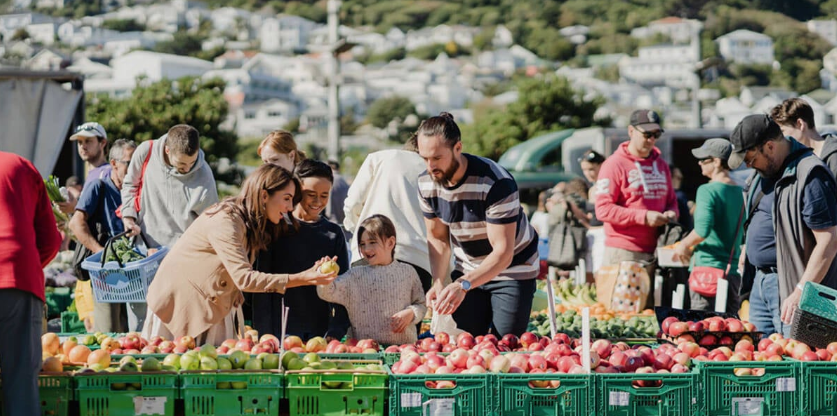
photo credit: Ryan Domenico
As our region grows, how do we ensure everyone has equitable access to healthy, affordable food?
There is growing awareness that for food production to be economically and environmentally viable over the long term and for future generations, we need to address it as a system. If we don’t look at our food system in a holistic way, our current way of doing things in terms of food production and consumption patterns left unchanged, will lead to catastrophic environmental and climate impacts, reducing land productivity, significantly impacting the economy and worsening human health outcomes. The good news is that looking at things through a holistic lense, can help build a better model for our food system.
Good to eat: which foods are better for the environment?

Recent research has shed some light on which foods are better for the environment.
The study by authors Clark, Springmann et al, published in the Journal of Proceedings of the National Academy of Sciences, (August 2022 edition), analysed data from more than 57,000 food items available in UK and Irish supermarkets. The authors concluded that, generally speaking, nutritious products are more environmentally sustainable.
How can New Zealanders discuss how to fund the transport system in the future?
We’ve all heard the term ‘wicked problems’ – referring to challenges that don’t have a clear cause and effect, able to be solved with the pull of one lever, but are related to a bigger complex system.
Finding better ways to engage the public around these issues, is the work of Complex Conversations, a research programme of The Centre for Informed Futures at University of Auckland, which is designed to increase citizens involvement in public decisions and complex issues, and make public engagement more inclusive, informed and constructive.
One of their focus areas is transport. A good transport system allows people and goods to move efficiently and safely, to connect to friends and whānau, and to access job opportunities, education and recreation.
The way we pay for the transport system has functioned well for decades, but it is time to reconsider how it works in the longer-term, because the way New Zealanders travel is changing.
What should the land transport system look like in the future, and what is a fair way of funding it?
WRLC Thought Leadership Webinars – constructive conversations about delivering public good
WRLC was formed to support local and central government and iwi leaders in our region, work collaboratively on cross-boundary growth-related issues. What does that collaboration look like in practice? What role do mindset and values play in achieving ‘better community outcomes’? Transitioning to a cohesive, joined-up voice, in a complex environment, is a learning journey. As Einstein is famous for saying, “the definition of insanity is trying to solve a problem with the same thinking that created it.”
These webinars are designed to share evidence-based thought leadership on topics related to better outcomes for our communities.
Planning for the future. What do people really want from their neighbourhood? Dr Iain White
The 15/20 minute city/neighbourhood is a widely discussed concept as a way to reduce carbon emissions, improve livability, and make local economies more resilient, but how do we translate this agenda from a top-down technical expert exercise, to one that recognises difference and equity?
In this talk, Dr White will share findings from a national survey conducted in Aotearoa in 2020 aiming, to provide evidence on these issues, thus providing insights into what people want from good planning and in their neighbourhoods.
Dr White will discuss various data from the survey, such as which amenities people prefer to live closer to, how much time people will travel for various amenities, and how this differs between walking, cycling or micro-mobility, between populations, and between time of day. This data provides potential interest to policy-makers looking for evidence to inform city/regional strategies, or how to temper growth imperatives with a parallel focus on growing well and navigating the difficult local politics involved with urban change.
Robert Liberty: Regional Planning in Oregon: goals, practices & performance
Robert Liberty’s career spans over 40 years of experience with the adoption, implementation and evaluation of spatial planning systems, mostly but not only in Oregon. In this talk, Robert shared the story of Oregon’s half-century of spatial-planning to stop urban sprawl, increase housing and transport choices, protect rural areas and reduce GHGs.
Dr Tom Logan: Integrated planning: Finding co-benefits for sustainability, resilience, health, and equity.
Today’s wicked challenges (chronic disease, social and environmental injustices, and climatic change) are the most complex we have ever faced. Yet many processes and decision-making approaches remain siloed. In this webinar, Dr Logan discussed how modern planning requires an adaptive approach, that prioritises people, and spoke about some of the ongoing progress to support informed and integrated decisions.
How to talk about government and its work for long-term public good
How do we build public support for the changes we need?
Answering such questions, is why research organisation The Workshop exists. In July, they released a report on, “How to talk about government and its work for the long-term public good”.
On Thursday Nov 3rd Jess Berentson-Shaw will talk about the research and the shifts we can all make in how we talk about decision-making in local and central government. This will feature a one hour talk followed by plenty of time for Q&A.
This online event will feature a one hour talk with plenty of time for questions and answers.
Submissions sought on the Review of local Government – Draft Report
Local government plays a critical role in building strong, healthy, and prosperous communities for Aotearoa .
This review is a significant, ‘once in a generation’ opportunity to reimagine local government, and to explore what better looks like. How must local government think and act differently to fulfill its role of ensuring prosperous communities, in the face of shifting social, economic, climate and environmental challenges?
This draft report lays down a wero (challenge), and is a provocation to prompt vigorous debate, to help shape the final report due in mid-2023.
Have your say – visit the submission portal
About the Wellington Regional Leadership Committee
WRLC is a joint regional partnership which brings together Iwi leaders, Mayors, Ministers of Government, and an independent chair, to join up thinking and work collaboratively on cross-boundary, growth-related challenges in the Wellington-Wairarapa-Horowhenua region.
WRLC brings a solution-focused approach to finding better ways of working together to positively shape our region’s shared future, and to ensure that our region continues to be a place where people want to live, work and thrive.
Our work programme covers five key areas; iwi capacity, housing, climate change, transport and economic development and recovery, find out more on our project page.
If you have any questions or interest in getting involved, you can contact us at hello@wrlc.org.nz.
